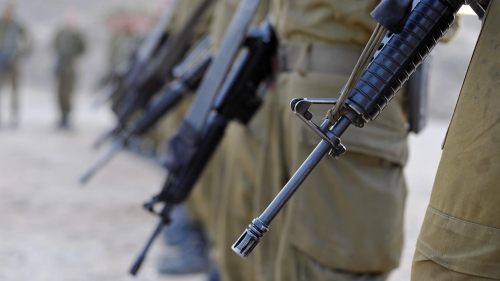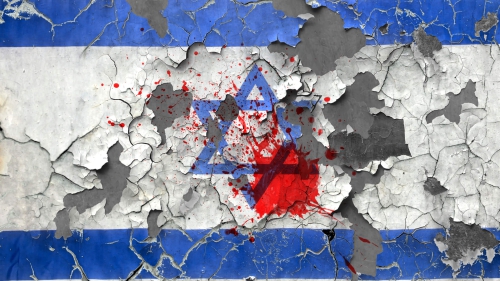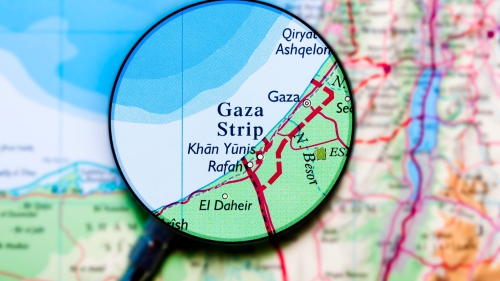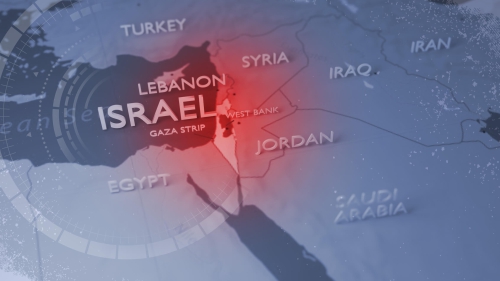Gaza Must Spurn Anarchy
Khalid Al-Zabin, a 59-year-old Palestinian journalist, was ambushed outside his office in Gaza, on March 2. His body was riddled with bullets. All that is known about his executioners is that they wore masks. No faction has claimed responsibility for his murder and the Palestinian Authority has not named any suspects.
The disturbing episode is likely to be filed into the ever-expanding cabinet of Gaza's victims of anarchy and disorder. This time however, the stakes are much higher, and blaming Israel alone, simply, will not suffice.
Reporters Without Borders condemned the murder and called on PA President Yasser Arafat to "act". RSF, among other groups, weighed up the crime in terms of its relation to a trend of assaults targeting Palestinian journalists by unknown assailants. A few other incidents were cited to further highlight the alarming trend: The ransacking of a newspaper's office, the torching of a journalist's car and others. Al-Zabin's murder was certainly the bloodiest.
Although one ought to appreciate the journalistic facet of Al-Zabin's death, it must be equally clear that the issue is much more worrying than the disconcerting need of some to suppress free speech and hush up those who advocate it.
Indeed, the issue has much wider ramifications.
Al-Zabin is a close advisor to Arafat; he runs a newspaper - Al-Nashra that is funded by the authority. The paper has always shown interest in the complex and controversial subject of human rights. Considering the PA's own record, Al-Zabin's task must have been grueling.
Al-Zabin, a member of the popular Palestinian faction, Fatah, was killed just a few days after the movement's top members concluded intense talks in Arafat's Ramallah headquarters. Although Fatah's senior members gave the impression that they had patched up their differences by the last day of talks, the rift was not truly mended. Since the mass desertion of hundreds of its members last December and the difference of opinion among its various offshoots on the mandate of the movement's military wing, Al-Aqsa Brigades, Fatah has been facing one of its toughest challenges in recent years. The turmoil in Fatah is likely to trigger tremors throughout the occupied territories, especially in the highly politicized Gaza Strip.
The recent and unexpected announcement by Israeli Prime Minister Ariel Sharon that he intends to evacuate - or relocate to the West Bank- most of the Gaza Strip's illegal Jewish settlements, ignited an array of unpleasant predictions about a power struggle among Palestinian factions wishing to dominate the "liberated" Gaza. "Palestinian power struggle worsens" wrote the Age newspaper of Australia, commenting on the "dirty assassination" - as described by Arafat - of Al-Zabin. The US Christian Science Monitor went further in decoding the hidden indications of the assassination. "Hamas seeks primacy in Gaza," it alleged, although the article failed to fully explore such a claim.
But the touting of the media is not the only indicator of the feared power struggle. PA officials themselves are hardly discrete in voicing their anxiety over the prospect of an "alternative authority" allegedly posed by Hamas in Gaza, as stated by Mohammed Dahalan, a former PA interior minister.
Many in the Israeli press as well are up in arms. Commentators are employing the anarchy-in-Gaza scenario to both express resentment at Sharon's evacuation proposal and to once again underscore the claim that Palestinians are simply incapable of ruling themselves. Moreover, by playing up the prospect of a power struggle in Gaza, Israel is trying to shift attention from the land grab now going on in the West Bank under the ruse of building a "security fence" to keep suicide bombers at bay.
And now, Israel's Gaza "concession" has once again posed a challenge to the PA, still unable or unwilling to unify ranks along with Palestinian resistance movements who are equally responsible for achieving the long-sought national unity. Yet while Israel is hoping to get Egypt drawn into the Gaza scheme, bypassing the Palestinian representatives, the PA and various factions have displayed few indications of their ability to counter Israel's maneuvers.
Even though Egyptian President Hosni Mubrak made it clear that his country has no interest in getting involved in Gaza again, Israel is unlikely to carry out a partial withdrawal from Gaza, if any, without "guarantees" of security, an ambiguous demand that often means the very opposite to the Palestinians.
Certainly, the media might have overstated the political consequence of the killing of Arafat's trusted advisor.
This is in part a result of the timing of the assassination ( Sharon's Gaza announcement and the hyped Hamas taking over Gaza claims.) But, although Palestinian society is still functioning despite systematic Israeli attempts to plunge it into total chaos, one must admit that anarchy is not an alien concept in Gaza and other parts of the occupied territories.
If the killing of Al-Zabin was the first sign of political mayhem and a fierce power struggle, then, Israel would've managed to prove its historic allegations of Palestinian incompetence to rule themselves.
Israel has played a prime role in the Gaza mess, but this time, it is not Israel alone that deserves the blame. Palestinians themselves are falling into a trap, already bickering over the Gaza prize before it was even offered to them.
By failing to take charge of their own destiny, in a unified fashion, Palestinians, regardless of their political and ideological affiliations, risk being marginalized and victimized by mandates and caretakers. "If it is not possible (for Palestinians to take charge of Gaza) under the present circumstances, why should an interim Egyptian role be considered?" writes Hasan Abu Nimahm in the Jordan Times. Those Palestinians, who lived under an Egyptian mandate in the 1950s and 60s, know too well the answer to that question.
True, the death of Al-Zabin is not the first politically motivated assassination and will not be the last. But for Palestinians, the stakes this time are much higher and an internal dispute coupled with muscle flexing would deeply harm all that Palestinians fought to achieve.
The world is watching what is to yet come out of the Gaza quandary. The media is, as ever, willing to condemn and lambaste Palestinians, their incompetence and failures, retrospectively validating Israel's policy and historic allegations that Palestinians are unable to govern themselves.
Palestinian factions must shun internal strife if they truly wish to maintain the repute of their struggle worldwide- a struggle for their historical rights and political independence.
Ramzy Baroud is a Palestinian-American journalist and editor-in-chief of The Palestine Chronicle online newspaper. His articles were published and quoted in newspapers around the world, including the Washington Post, the International Herald Tribune and the Guardian, among others. He is the editor of the anthology: "Searching Jenin: Eyewitness Accounts of the Israeli Invasion." Baroud is also a researcher for the Qatar-based al-Jazeera Net English.
To buy "Searching Jenin: Eyewitness Accounts of the Israeli Invasion" CLICK HERE
Related Suggestions
It does seem reasonable however to suppose that the methods by which the Palestinians attain their freedom (insha'Allah) will be a part of Palestinian politics for a long time afterwards. Wassalam.
"The bitter irony of fate decreed that the same biological and racist argument extended by the Nazis, and which inspired the inflammatory laws of Nuremberg, serve as the basis for the official definition of Jewishness in the bosom of the state of Israel" (quoted in Joseph Badi, Fundamental Laws of the State of Israel NY, 1960, P.156)
Both governmental authorities are at fault here in this ever so twisted turmoil. At fault also are the neighbouring governments among the Sham.
No one deserves the right to be free, from these political prostitutes Sharon and Arafat and their institutions, more so than the indigenous Palestinian people of the West Bank and Gaza.

















